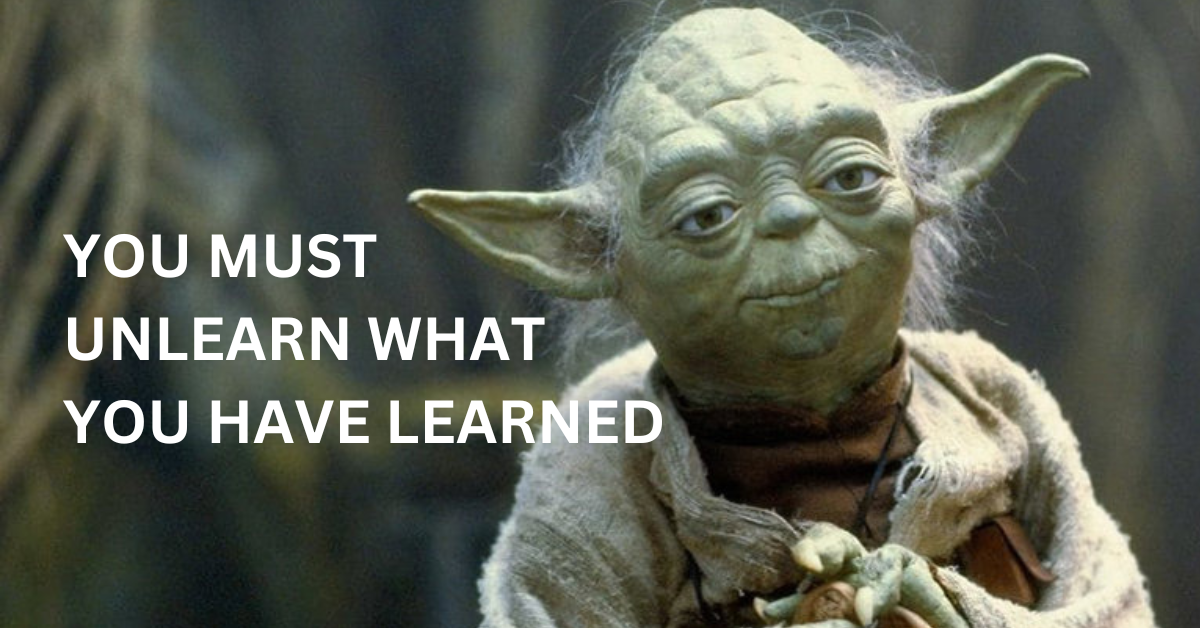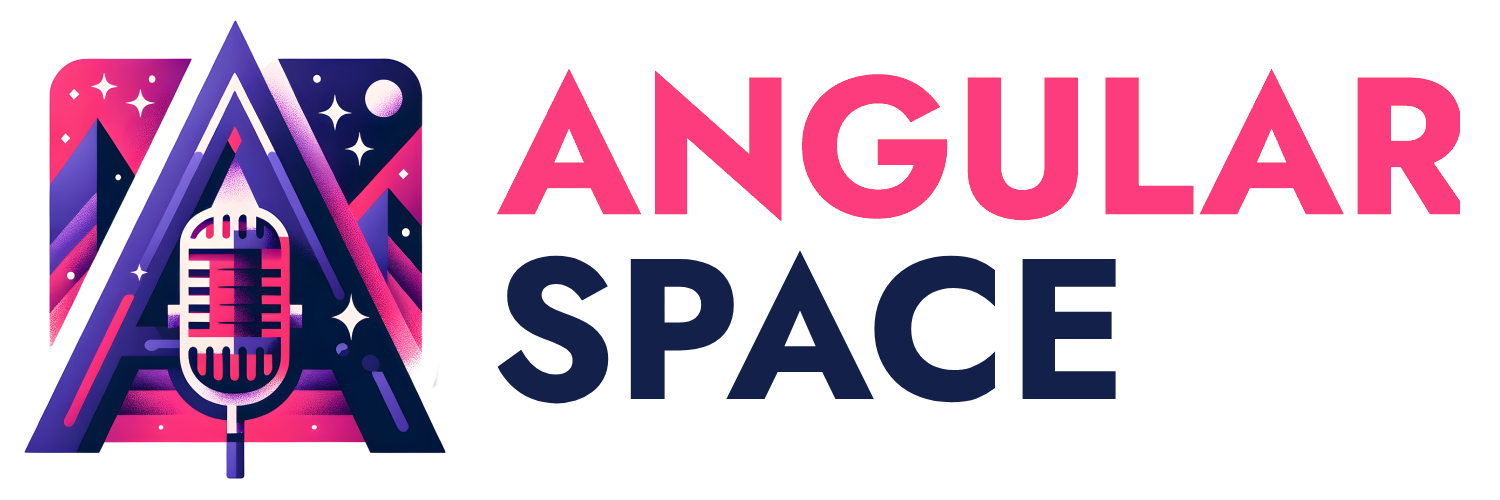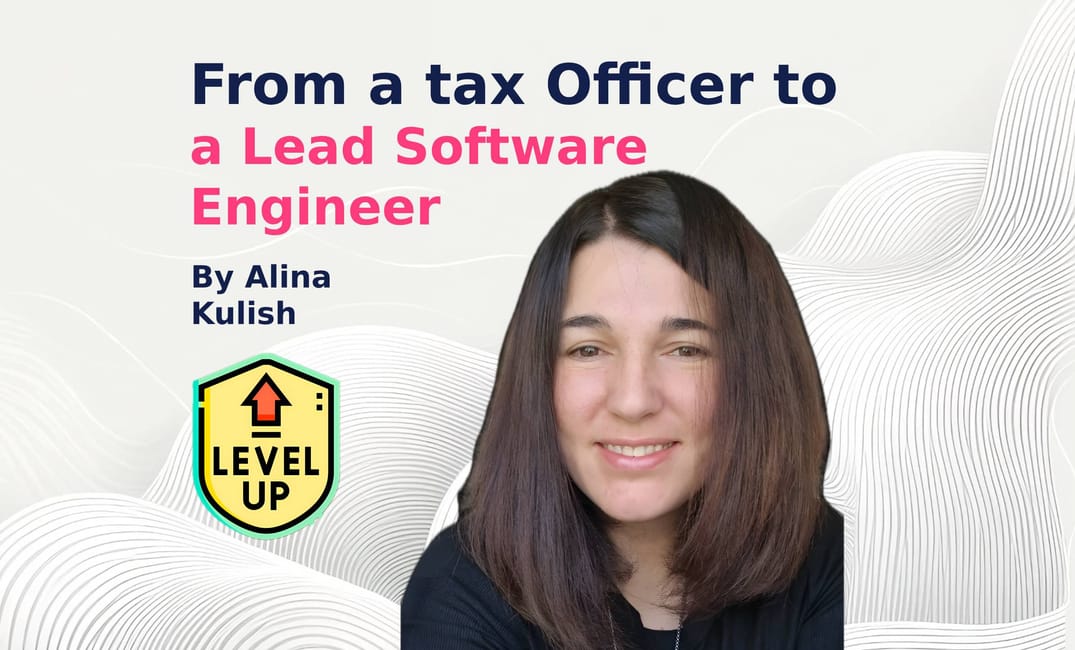Part 1. How to learn c# in one month 🤣👉

I was that kid in school - the one who always had her homework done, sat in the front row, and made teachers smile. I finished school with the highest marks in every subject. But here’s the funny part: I didn’t even have a computer back then.
At university, I dove into finance and graduated with a Master’s degree in taxation. The highest marks there, too. (Yes, I was a bit of an overachiever.) But still, programming was nowhere on my radar.
Then came my first job: four long years at the tax office. And let me tell you - it was a disaster. I hated it. Mondays were my nemesis. I remember thinking, “Is this really it? Am I going to spend my life filing papers and chasing unpaid taxes?”
Eventually, I hit my breaking point. I told myself, “Listen, you need to do something with your life.” And that’s when I discovered programming courses. JavaScript, HTML, CSS - the beginner’s bundle. This was 10 years ago, and I was still working full-time. So, my evenings were spent at the courses three times a week for three hours each. By day, I was crunching numbers at the tax office, and by night, I was crunching through code. I didn’t have free time - I had JavaScript syntax errors.
When I finished the courses, I quickly realized that “Hello, World!” and a basic website weren’t enough to get a job. So, I started looking for internships. I found one at an IT company for students willing to learn C#. Yes, it was not JavaScript!
Now, let me be clear - I knew nothing about C# 🤯. I didn’t even know what the "C" stood for. But in true “fake it till you make it” fashion, I gave myself a crash course. For one month, it was just me, online tutorials, and enough coffee to fuel a small city. The goal? Learn just enough C# to pass the interview.
And guess what? I got in! Six months later, the company asked if I wanted to switch to front-end development because they needed Angular developers. I thought, “Sure, why not? What’s one more "small" shift at this point?” I learned Angular, joined an internal project, and officially became a junior front-end developer. That was my first real IT job, and I felt like I had just hacked the system - literally and figuratively.
And that’s how my programming journey began - with zero experience, a lot of late nights, and a pinch of chaos.
At this point, I realized something important: switching careers while managing a full-time job (and life in general) wasn’t about having time - it was about making time. A lot of people say, “I don’t have time to learn a new profession.” Trust me, I get it. But the truth is, focusing on the result and prioritizing your goals can make a world of difference.
Here’s what worked for me (and might work for you):
- ✅️ I surrounded myself with learning opportunities. I found YouTube lessons I could watch on the bus to work. I stopped binge-watching TV shows (sorry, Netflix) and focused on doing my homework instead. I made learning unavoidable, like that annoying alarm you can’t snooze.
- ✅️ I told my friends and family about my goal. This was my way of saying, “Hold me accountable!” Plus, every time they asked, “How’s the coding going?” I felt a little more motivated to keep pushing.
- ✅️ I mixed it up. Watching videos during commutes, practicing during quiet times at work, and attending courses after hours - it was like a coding bootcamp I designed myself.
- ✅️ I said “yes” to everything. During my internship, I tried being a Scrum Master, Business Analyst, QA, and even dove in automation. Every time someone said, “Can you try this?” my answer was, “Sure, why not?” Did I know what I was doing? Not always. But I figured it out.
Now, let’s not sugarcoat this. I made some big mistakes too:
- 📛 I forgot to rest. I pushed myself so hard that I burned out, developed health issues, and ultimately went through a divorce with my first husband. Lesson learned: chasing your goals is important, but so is taking care of yourself and your relationships.
- 📛 I doubted myself constantly. I overthought everything and missed opportunities because I didn’t feel “ready.” Spoiler: you’re never 100% ready. Do it anyway.
Part 2. The hardest part: overcoming imposter syndrome 😰

When I got my first real IT job, I was 27. Sounds cool, right? Well, not exactly. My colleagues were mostly 19- or 21-year-olds, fresh out of university with programming degrees. Meanwhile, there I was - the “ancient” newbie with a background in taxes. I kept thinking, “How can I ever be on the same level as them? They’re going to fire me any day now. I must be the dumbest person in the room.” I wasn’t, but it felt like it at the time.
The stress was real, and so was my new best friend - chocolate. I gained 10+ kilos eating sweets to deal with the anxiety. (On the bright side, nobody complained when I brought cake 🍰 to the office.)
But here’s the thing: even though I felt like a fraud most of the time, I didn’t let that stop me. I was constantly learning, constantly practicing.
During this time, I learned a few important lessons that I still live by:
- ✅️ Don’t let fear stop you from learning and practicing. It’s okay to feel like you don’t know enough - just keep going.
- ✅️ Don’t be afraid to ask questions. Seriously, no one will bite you.
- ✅️ Respect your colleagues’ time - Google it first, or at least try to figure it out on your own. Don’t make them your personal “Google assistant.” And hey, that’s what ChatGPT is for, right?
- ✅️ If you don’t understand the answer, write it down and Google it later - or ask AI to simplify it. I did this all the time. I had some pretty strange notes after talking to my tech lead - honestly, they looked like the ramblings of a mad 👨🔬 scientist. But hey, it worked!
Looking back, those early days weren’t just hard - they were transformative. I didn’t just learn Angular or how to debug. I learned how to face my fears and keep moving forward.
Part 3: I need to work for a big company to prove I’m a real programmer 🧑💻

After about two years as a developer, I started dreaming about joining a big tech company. No, I’m not talking about the IT giants (I wasn’t that ambitious… yet). But I did want to work for one of the biggest companies in my country.
So, I started preparing. I spent hours studying for interviews and, well… failing them. A lot. But eventually, persistence paid off, and I got an offer. That’s when the real adulting began.
My new project wasn’t just about writing code. Oh no! I had to work directly with the customer, and guess what? There was no team in my time zone. It was just me, Zoom calls, and a whole lot of “English only” hardcore mode. My English? Let’s just say it wasn’t exactly polished back then.
To make things even more interesting, my team lead was from London. He had this dry, British humor that I didn’t understand at all. I spent the first few weeks worrying that they’d fire me because I couldn’t make a clever joke in English. Thankfully, it turns out writing good code is more important than cracking good jokes.
This phase of my career wasn’t just about becoming a better developer - it was about learning to communicate, negotiate, and push my English skills to almost an advanced level. It wasn’t easy, but it was absolutely worth it.
Here’s what I learned as a middle developer during this time:
- ✅️ Great communication skills can save you in any situation. If you can explain your ideas clearly, it’s like half the job is already done. Plus, you’ll avoid those awkward “Wait, what do you mean?” moments.
- ✅️ Don’t stop learning. You might feel like you’ve got it figured out, but trust me - you’ve only scratched the surface. There’s always more to learn, and you’ll thank yourself later for putting in the effort.
- ✅️ Find a mentor. A good mentor isn’t just someone who answers your questions - they’re the person who shows you things you didn’t even know you needed to ask about.
This chapter of my career taught me that being a programmer is about more than just code. It’s about learning how to connect with people, adapt to challenges, and grow as a professional.
Part 4: I am your mother, Luke 😉👀

Okay, so there was no Luke, but there was a little Tim - my son. This is the beginning of my current journey. Almost 4.5 years ago, I became a mom, and everything changed. After a six-month maternity break, I decided to change the company. I prepared (while also figuring out how to survive on three hours of sleep) and landed an offer at the company I’m still with today.
This is where my journey toward becoming a senior developer - and now a leader - truly began.
It hasn’t been all smooth sailing. This job has given me incredible highs and some serious lows. I’ve been thrilled by my progress and totally burned out at times. But it’s also where I grew the most.
Here’s what I’ve accomplished so far:
- ✅️ I started mentoring others, guiding juniors, and loving every moment of it.
- ✅️ I became an interviewer and discovered that helping hire the right people is one of my favorite parts of the job.
- ✅️ I overcame my fear of public speaking (a phobia I had since school) and now genuinely enjoy giving talks.
- ✅️ I created courses, contributed as an author, and helped others grow as a mentor.
Right now, I’m at another turning point - transitioning from a senior developer to a lead role. And let me tell you, it’s not just about a new title. It’s about completely rewiring how I think and work.
The big challenge
Here’s the thing: what made me a good developer doesn’t necessarily make me a good leader. As a developer, I could zone in, focus on technical problems, and write clean code like it was my superpower. But now? That’s just one piece of the puzzle.
I’ve realized I need to stop focusing so much on the code and start focusing on people. (Spoiler: people are way more complex than JavaScript bugs 🤯🐛!) My priorities now include:
- ✅️ Learning how to negotiate with people. Turns out, you can’t debug humans like you do code. Unfortunately..
- ✅️ Thinking strategically. It’s no longer about “perfect code.” Now, it’s about asking, “Will this make the business happy?” And let’s be honest, happy businesses pay the bills.
- ✅️ Delegating. My old mantra was, “If you want something done right, do it yourself.” Turns out, that’s a one-way ticket to burnout. Now, I’m learning to trust others - even if I secretly want to grab the keyboard sometimes.
Honestly, it feels like I’m tearing down my old foundation and building something entirely new. It’s scary, but also really exciting.
My goal for this year
This year, I’ve set one big goal: to spend more time with people than with lines of code on my screen. I want to shift from being the “go-to coder” to being a mentor, a coach, and someone who can see the bigger picture.
Oh, and about three months ago, I also started actively sharing my journey on LinkedIn. It’s been an amazing ride so far, and I’m proud of the progress I’ve made in building my personal brand and connecting with others.
Here’s what I’ve learned during this chapter of my life:
- ✅️ Time management is all about priorities. When you’re balancing a child, a full-time job, and life in a foreign country with no extra help, you quickly learn to use every minute wisely.
- ✅️ Development is not just about writing code. It’s about the people who write it. This is a truth every developer needs to learn.
- ✅️ Don’t be afraid to ask for help. Be open - you’d be surprised how much support you can get when you need it.
- ✅️ Listen more than you talk. Growth comes from both knowledge and understanding others.
And finally, let me leave you with this thought: you have to believe in what you do. Even when it’s hard, even when you doubt yourself , just keep moving forward.
This is my story so far, but the journey isn’t over. Who knows what’s next?


